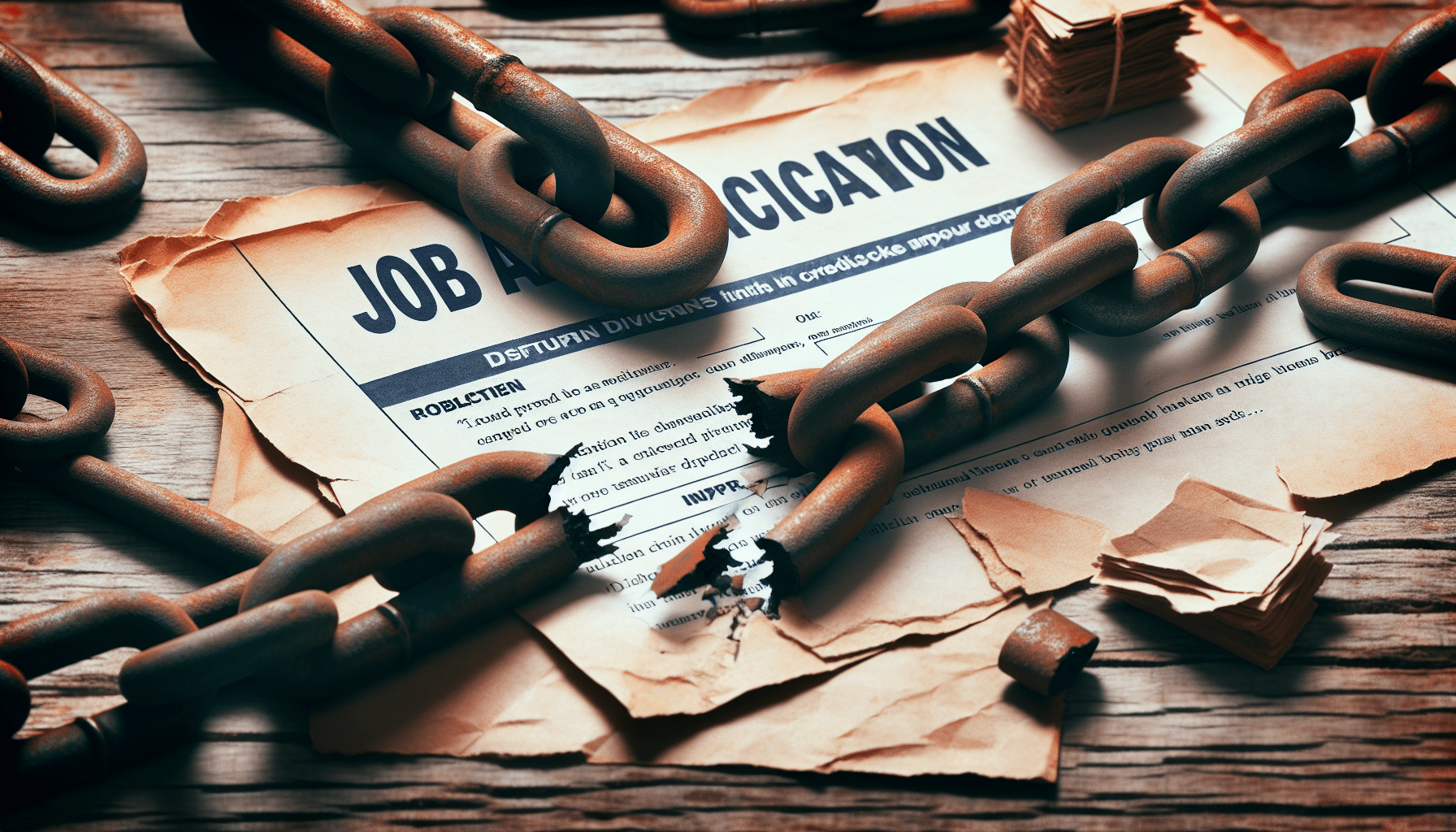Have you ever wondered if your bad credit could impact your ability to land your dream job? The answer might surprise you. Your credit score can indeed influence your job application process, as some employers conduct credit checks as part of their hiring screening. While bad credit won’t necessarily disqualify you from getting hired, it could potentially raise concerns for certain employers. Understanding how your credit score can affect your job prospects is essential in today’s competitive job market.
How Bad Credit Can Impact Your Job Application
When you’re on the job hunt, it’s essential to put your best foot forward. But, did you know that your credit score could potentially impact your job application? Employers have been known to check credit reports as part of the hiring process, especially for positions that involve financial responsibilities or require security clearances. Let’s dive into how bad credit can affect your job prospects and what you can do about it.
Understanding the Connection Between Bad Credit and Job Applications
You might be wondering how your credit history is relevant to your job search. Employers often use credit reports as a way to gauge an individual’s level of responsibility and financial stability. A good credit score can demonstrate that you are reliable, organized, and trustworthy, characteristics that employers value in their employees. On the other hand, a poor credit history could raise red flags about your ability to handle financial matters or make sound decisions.
How Employers Use Credit Checks in the Hiring Process
Employers are typically not checking your credit score itself, but rather your credit report, which provides a detailed overview of your credit history. They may look for patterns of financial irresponsibility, such as missed payments, high levels of debt, or accounts in collections. For positions that involve handling money or sensitive information, employers may view a low credit score as a potential risk factor. However, it’s important to note that not all employers conduct credit checks, and the practice varies by industry and company.
Steps You Can Take to Mitigate the Impact of Bad Credit on Your Job Application
If you’re concerned about how bad credit might affect your job search, there are several proactive steps you can take to address the issue:
-
Check Your Credit Report: Start by obtaining a copy of your credit report from one of the major credit bureaus—Equifax, Experian, or TransUnion. Review the information for accuracy and look for any negative items that may be dragging down your score.
-
Explain Your Circumstances: If you have negative marks on your credit report due to extenuating circumstances, such as a medical emergency or temporary job loss, consider providing a brief explanation to potential employers. Transparency and honesty can go a long way in mitigating concerns.
-
Focus on Building Positive Credit: Take steps to improve your credit score by making timely payments, reducing debt, and avoiding new credit inquiries. Building positive credit habits can demonstrate your commitment to financial responsibility.
-
Highlight Your Skills and Experience: Emphasize your qualifications, skills, and experience during the job application process to showcase your value as a candidate. Many employers prioritize relevant work experience and expertise over credit history.
Strategies for Addressing Bad Credit During the Job Interview
During the job interview, you may encounter questions or concerns about your credit history. Here are some strategies for addressing the issue professionally and effectively:
-
Be Honest and Transparent: If asked about your credit history, be honest about any past financial challenges or negative marks on your credit report. Provide context for your situation and focus on the steps you’ve taken to improve your credit.
-
Emphasize Your Qualifications: Shift the focus of the conversation to your skills, qualifications, and accomplishments that make you a strong candidate for the position. Highlight your work ethic, problem-solving abilities, and relevant experience.
-
Showcase Your Financial Responsibility: Demonstrate your commitment to financial responsibility by discussing how you manage your finances, pay bills on time, and make sound financial decisions. Illustrate your ability to learn from past mistakes and take proactive steps to improve your financial health.
The Legality of Credit Checks in the Hiring Process
It’s important to understand the legal implications of credit checks in the hiring process. The Fair Credit Reporting Act (FCRA) regulates how employers can use credit reports for employment purposes and requires their compliance with specific guidelines:
- Employers must obtain written consent from job applicants before conducting a credit check.
- Applicants must receive a copy of the credit report if adverse action, such as not being hired, is taken based on its contents.
- Employers must provide applicants with a pre-adverse action disclosure, including a copy of the credit report and a summary of their rights under the FCRA.
Final Thoughts on Navigating the Job Search Process with Bad Credit
While bad credit can pose challenges during the job search process, it doesn’t have to be a deal-breaker. By being proactive, transparent, and focusing on your qualifications and skills, you can address concerns about your credit history and present yourself as a strong candidate. Remember to check your credit report regularly, build positive credit habits, and showcase your financial responsibility during job interviews. With the right approach, you can overcome the impact of bad credit and secure the job opportunities you deserve.



